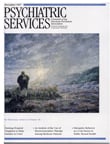Those of us who work with patients suffering from obsessive-compulsive disorder often have trouble figuring out how best to treat them. Textbooks quickly go out of date. Several good books written for the lay public have appeared in recent years, but they lack the documentation and data that support scientific advances. I believe that some also tend to overly dramatize the successes of the approaches advocated by the authors. Web sites, 16 of which are listed in a useful appendix in this book, are up to date, but the information is hard to place in a useful context. I have my doubts about symposia sponsored by drug companies. Where can we turn?
Obsessive-Compulsive Disorder: Theory, Research, and Treatment, edited by two psychiatrists and two psychologists from Ontario, tries to fill this gap. Chapters in the first section describe the biological, genetic, and psychological approaches to the understanding of obsessive-compulsive disorder. The second section addresses assessment and treatment, and the last one discusses disorders of the obsessive-compulsive spectrum.
Practicing mental health clinicians can find a lot here, though the quality varies. For example, I found the section on psychological testing particularly worthwhile. The last section of the book, having to do with disorders often considered part of the obsessive-compulsive spectrum, such as impulse control disorders, tic disorders, and eating disorders, is a very sensible approach to what is still a gray area. Other strong chapters include those on psychological approaches to understanding obsessional problems, personality and obsessive-compulsive disorder, and assessment. The area of psychotropic medications is well handled. The best of the book's sections are clear; the worst can be hard to get through.
I think that this book, with some overviews added in later editions, could provide a "serious center" to balance the serotonin-hypothesis lectures and the self-help books that oversimplify and polarize the issues. The rapid acquisition of medications that work, even if not perfectly, and our increased understanding of how behavioral therapy helps are among the major achievements in mental health treatment in the last two decades.
Obsessive-Compulsive Disorder: Theory, Research, and Treatment is important for anyone who wants to read about the scientific advances that have changed the way we treat patients with this disorder. As anyone who accesses the relevant Web sites can tell you, its information will quickly be outdated. Don't expect it to read like the popular books that can be found in psychology sections of general book stores. It's a scientific work, with many references and few case histories. Some of the chapters contain useful summaries clarifying issues that otherwise would be difficult to absorb; some don't.
However, if you treat patients with this disorder—and who doesn't, with word spreading rapidly that it's treatable?—this book should be on your shelf. It may help you answer the questions that arise about this mysterious affliction and the people who suffer from it.

